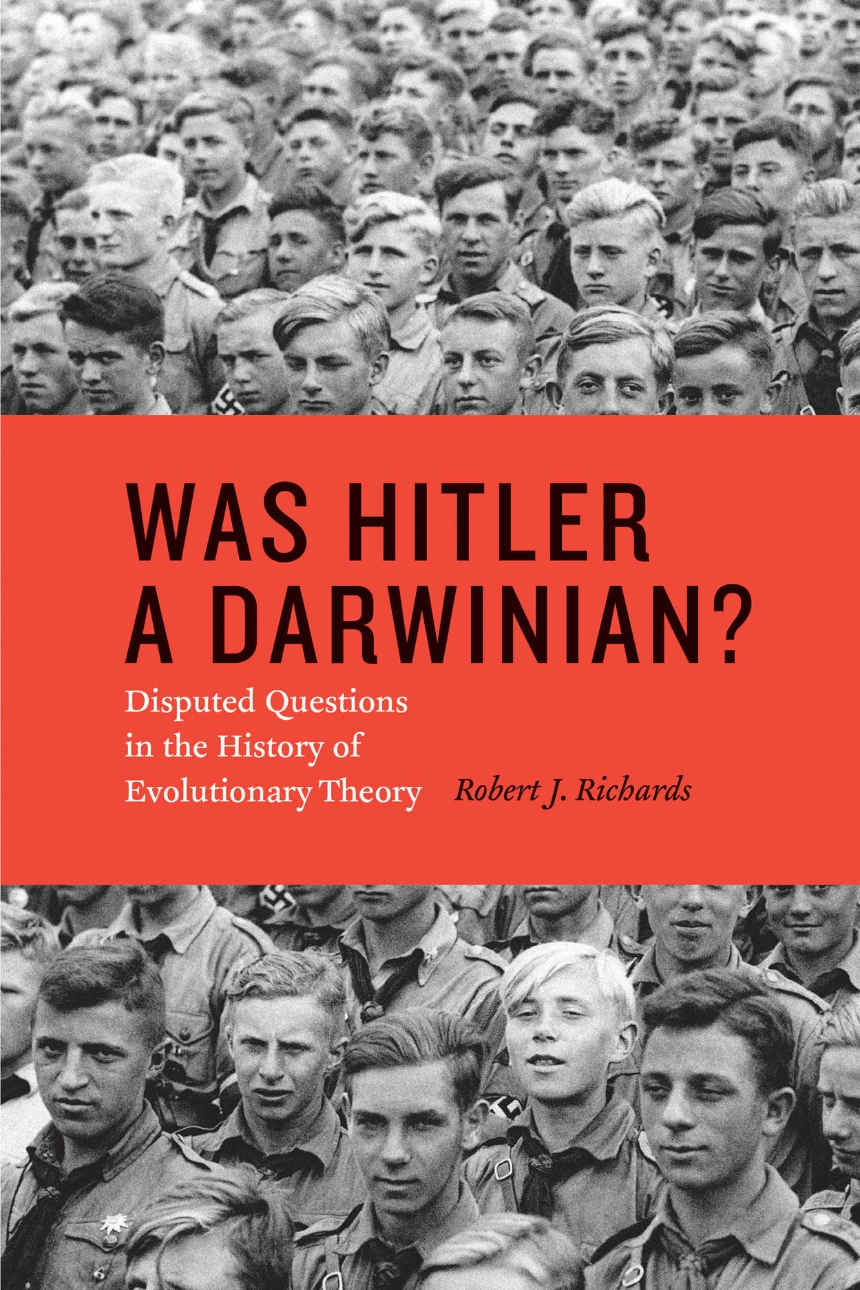Was Hitler a Darwinian?
Disputed Questions in the History of Evolutionary Theory
9780226058931
9780226058764
9780226059099
Was Hitler a Darwinian?
Disputed Questions in the History of Evolutionary Theory
In tracing the history of Darwin’s accomplishment and the trajectory of evolutionary theory during the late nineteenth and early twentieth centuries, most scholars agree that Darwin introduced blind mechanism into biology, thus banishing moral values from the understanding of nature. According to the standard interpretation, the principle of survival of the fittest has rendered human behavior, including moral behavior, ultimately selfish. Few doubt that Darwinian theory, especially as construed by the master’s German disciple, Ernst Haeckel, inspired Hitler and led to Nazi atrocities.
280 pages | 5 color plates, 33 halftones, 7 line drawings | 6 x 9 | © 2013
Biological Sciences: Evolutionary Biology, Natural History
History: History of Ideas
Reviews
Table of Contents
1 • Introduction
2 • Darwin’s Theory of Natural Selection and Its Moral Purpose
Appendix 1 The Logic of Darwin’s Long Argument
Appendix 2 The Historical Ontology and Location of Scientific Theories
3 • Darwin’s Principle of Divergence: Why Fodor Was Almost Right
4 • Darwin’s Romantic Quest: Mind, Morals, and Emotions
Appendix Assessment of Darwin’s Moral Theory
5 • The Relation of Spencer’s Evolutionary Theory to Darwin’s
6 • Ernst Haeckel’s Scientific and Artistic Struggles
7 • Haeckel’s Embryos: Fraud Not Proven
8 • The Linguistic Creation of Man: August Schleicher and the Missing Link in Darwinian Theory
9 • Was Hitler a Darwinian?
Acknowledgments
Bibliography
Index
2 • Darwin’s Theory of Natural Selection and Its Moral Purpose
Appendix 1 The Logic of Darwin’s Long Argument
Appendix 2 The Historical Ontology and Location of Scientific Theories
3 • Darwin’s Principle of Divergence: Why Fodor Was Almost Right
4 • Darwin’s Romantic Quest: Mind, Morals, and Emotions
Appendix Assessment of Darwin’s Moral Theory
5 • The Relation of Spencer’s Evolutionary Theory to Darwin’s
6 • Ernst Haeckel’s Scientific and Artistic Struggles
7 • Haeckel’s Embryos: Fraud Not Proven
8 • The Linguistic Creation of Man: August Schleicher and the Missing Link in Darwinian Theory
9 • Was Hitler a Darwinian?
Acknowledgments
Bibliography
Index
